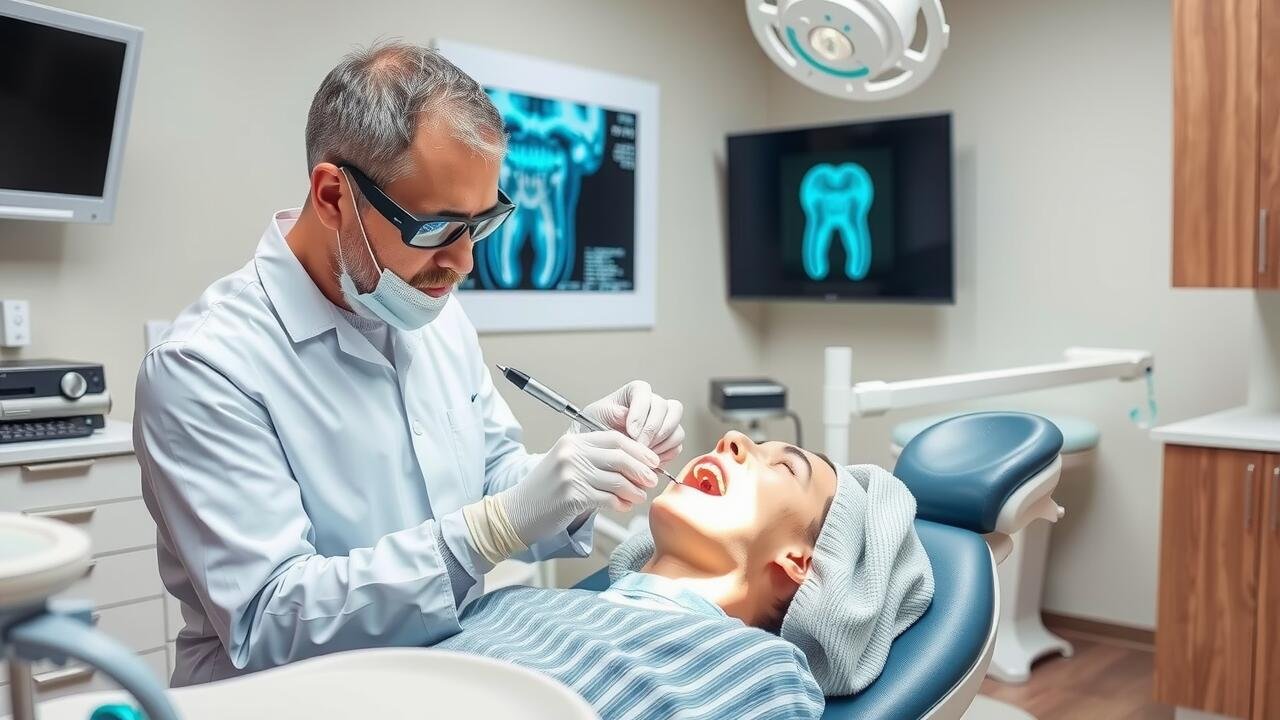
Maintenance and Care
Proper maintenance and care are crucial for the longevity of dental implants. Regular brushing and flossing are essential to keep the implant and the surrounding gum tissue healthy. Many dental professionals recommend using a soft-bristled toothbrush and non-abrasive toothpaste to avoid damaging the surface of the implant. Scheduling routine dental check-ups ensures that any potential issues are addressed promptly. Finding “Dental Implants near me” can help ensure access to professionals who specialize in the care of these restorations.
In addition to at-home care, the dietary choices one makes can also impact the health of dental implants. Hard or sticky foods may pose a risk of damaging both the implant and surrounding teeth. Maintaining a balanced diet that supports oral health while avoiding harmful habits, such as teeth grinding, plays a significant role in the longevity of the implants. Regular consultations with your dentist can provide additional insights on how to care for your implants effectively.
Keeping Your Implants in Optimal Condition
Maintaining dental implants requires a commitment to good oral hygiene. Regular brushing and flossing are essential to prevent plaque buildup around implants. Utilizing specific tools like implant-friendly toothbrushes can enhance the cleaning process. Routine dental check-ups are also vital for monitoring the health of both the implants and surrounding tissues. Dentists can provide personalized advice tailored to individual needs.
Choosing qualified providers for dental implants near me can also affect long-term success. Ensuring that the procedure is performed by an experienced professional minimizes post-operative complications. Additionally, proper care following the placement of the implants aids in their longevity. Adhering to guidelines provided by your dentist can contribute significantly to keeping your implants in optimal condition.
Time Commitment
The process of getting dental implants requires a significant time commitment. Initially, patients need to undergo a thorough evaluation, which includes imaging studies and consultations with specialists. Following this, the surgical procedure itself can take several hours, depending on the number of implants being placed. Healing time can vary as well, often requiring a few months before the implants fully integrate with the jawbone.
After the healing phase, additional appointments will be necessary for placing the abutment and final crown. Many patients may find this timeline challenging, especially if multiple visits are involved. Those considering the procedure may benefit from searching for “Dental Implants near me” to ensure convenient access to specialists and reduce overall travel time for appointments.
How Long Does the Entire Process Take?
The full dental implant process typically spans several months from the initial consultation to final restoration. After the first appointment, which includes a thorough assessment and imaging, the surgical placement of the implant occurs. This part of the process may take about one to two hours depending on the complexity of the case. However, healing time can extend from three to six months as the jawbone fuses with the implant through osseointegration.
Once the healing is complete, patients can return to the dental office for abutment placement and impressions for the crown. The final restoration can take an additional couple of weeks. Those searching for “Dental Implants near me” may find that local clinics provide clear timelines during initial consultations, leading to a better understanding of what to expect throughout the procedure. Each individual’s experience will vary based on personal health and specific dental situations.
Impact on Oral Health
Dental implants can significantly impact oral health, particularly when it comes to the surrounding teeth. When a tooth is missing, the neighboring teeth may shift into the space over time. This movement can lead to misalignment and additional dental issues. By opting for dental implants, patients effectively fill in the gaps, helping maintain the proper alignment of their teeth and preventing further complications.
Finding “Dental Implants near me” can ensure that individuals receive quality care for their dental needs. Skilled professionals can evaluate the condition of the surrounding teeth before proceeding with implants. This evaluation allows for personalized treatment plans that promote long-term oral health, emphasizing the importance of maintaining a strong and balanced bite.
Can Implants Affect Surrounding Teeth?
Dental implants can indeed impact the surrounding teeth, primarily through the way they interact with the existing dental structure. When an implant is inserted, it requires the support of the surrounding bone and gum tissue. If not properly aligned, an implant can place undue stress on neighboring teeth, leading to potential long-term complications. Misalignment can result in issues such as shifting of adjacent teeth or even gum recession, which highlights the importance of choosing a qualified professional for the procedure.
Patients considering dental implants often search for “Dental Implants near me” to find local specialists who can help ensure proper placement. Regular consultations and follow-ups with the dentist are crucial in monitoring the health of both the implants and the surrounding teeth. Early intervention can prevent many issues that may arise, ensuring that the overall integrity of a patient’s dental health remains intact.
FAQS
What are the potential downsides of dental implants?
Some potential downsides of dental implants include the risk of infection, the need for surgery, possible damage to surrounding teeth, and the time required for the healing process.
How can I maintain my dental implants effectively?
To maintain dental implants effectively, practice good oral hygiene by brushing and flossing daily, visit your dentist regularly for check-ups, and avoid hard foods that could damage the implants.
How long does the dental implant process usually take?
The dental implant process can vary, but it typically takes several months from the initial consultation to the final placement of the crown, including time for healing and osseointegration.
Can dental implants affect my oral health negatively?
While dental implants can improve oral health by providing stability and preventing bone loss, improper placement or maintenance can lead to issues such as gum disease or damage to adjacent teeth.
Are dental implants suitable for everyone?
Dental implants may not be suitable for everyone, particularly individuals with certain health conditions, insufficient bone density, or those who smoke. A thorough evaluation by a dental professional is essential to determine candidacy for implants.

